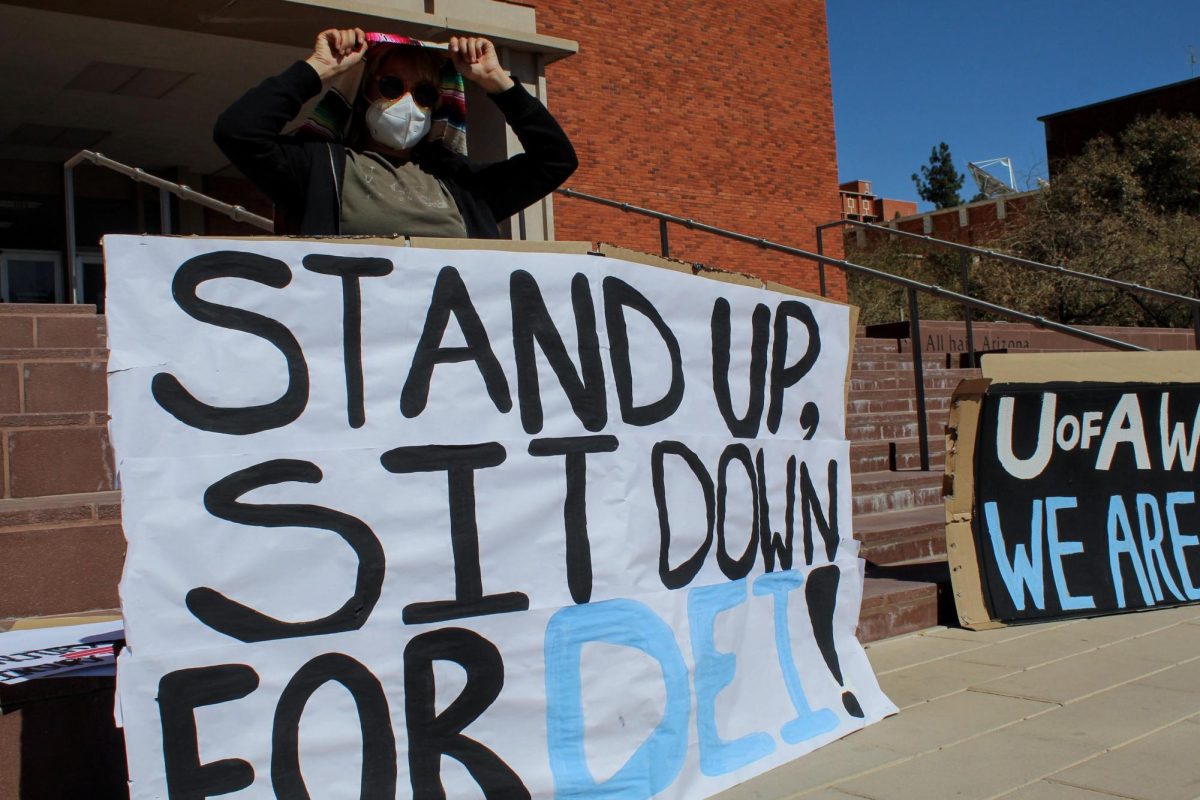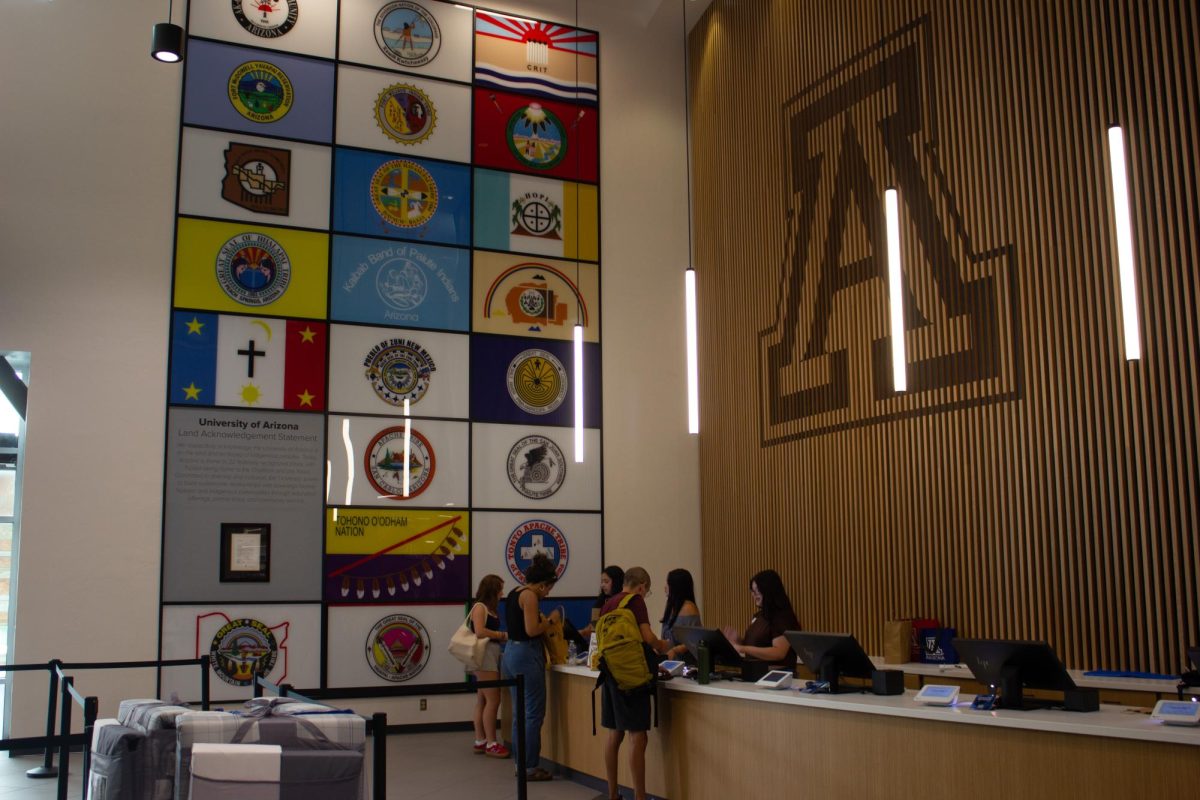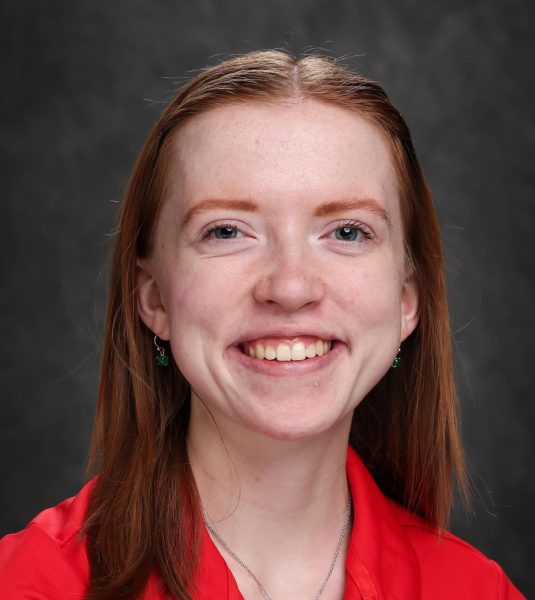The Arizona Board of Regents met Friday, Feb. 22 at Arizona State University to discuss a wide range of topics affecting Arizona’s three public universities, from the ongoing financial woes of the University of Arizona to the behavior of the UA’s Faculty Senate.
“Enough needs to be enough”: Regents denounce UA Faculty Senate
Among the many agenda items at the board’s meeting Friday, regents found time to call out the UA Faculty Senate, a governing body at the university that practices shared governance with campus staff, faculty, students and ABOR, often serving in an advising capacity to the board.
ABOR Chair Fred DuVal had a lot to say about the senate on Friday, following an accusation made by Faculty Chair Leila Hudson that DuVal had a conflict of interest concerning his work with Amicus Investors, a company that works on public and private financing partnerships for universities, and his work with the board.
According to DuVal, the timelines of his positions at each respective organization did not overlap and there was no conflict. DuVal said he had employed the legal services of former U.S. attorney Paul Charlton and was seeking legal remedies. DuVal also said that this accusation has led him to question the validity and integrity of the senate.
“The caliber of academic research skills that were demonstrated here are rather concerning. I frankly now doubt the accuracy and credibility of any one of the many accusations that are being made against the university and the president,” DuVal said. “And unfortunately, Dr. Hudson has inflicted a terrible blow to shared governance which frankly works so well at the other two universities. How do you develop trust with people who intentionally lie about and publicly defame their partner?”
ABOR Treasurer Lyndel Manson furthered this criticism of the senate and called on UA President Dr. Robert C. Robbins to “establish new faculty leadership.”
“The behavior of the UA Faculty Senate has been of concern to the regents for a number of years, and this past week’s devolution into personal attacks is beyond the pale […]. At some point, enough needs to be enough. And that time is now,” Manson said. “We’re frankly unsure of how representative this body is of the greater faculty of UA. With few exceptions, productive and positive minded faculty have declined to serve in the senate because of its negative, aggressive nature and its lack of focus on what’s truly best for [the] university.”
UA Faculty Senate Parliamentarian Mark Stegeman responded to these criticisms during the meeting’s call to the audience section.
“[The senate] should not be judged by those 10 who speak the loudest. There are dozens of senators I can say certainly who care deeply about shared governance and want to make it work,” Stegeman said.
Reiterating the “red lines”: Guiding principles for UA’s financial recovery
A focal point of Friday’s ABOR meeting was the UA’s financial updates.
At the start of the meeting, DuVal explained the six guiding principles of the university’s path forward: do not raise tuition, do not impact current students, do not touch retirement and benefits, do not implement furloughs, cut from the top first and protect the academic core.
According to DuVal, the university has made good progress in most of these categories.
“$27 million in administrative reductions was the first step. With the announcement of the new athletic director we feel like we have the right leadership in place at the right time to get athletics in the right spot,” DuVal said. “The centralization of IT, HR and finance is already underway, […] we’re making progress and executing according to plan. We’re eager to work with anyone and everyone who is interested in contributing to real solutions and discussing these choices.”
Later in the meeting, ABOR Executive Director and UA’s Interim CFO John Arnold gave a presentation detailing the university’s fiscal year 2023. According to this presentation, FY 2023 saw a net change loss of $140 million; $32 million of this loss came from a loan to the athletics department, $61 million came from colleges and divisions, $15 million came from the strategic plan, $26 million came from unallocated leases/utilities/institutional costs, $35 million came from 27th payroll and $18 million came from the deferred payroll tax.
According to DuVal, the board is “eager” to work with all members of the community to work towards the goal of financial health at the university.
Updates on the UA Global Campus
Last week, the board and the university sent a letter to Arizona Gov. Katie Hobbs that went over details about the acquisition of Ashford University and its transition to become the UA Global Campus. The report lays out the rationale for this acquisition, including the “opportunity for national extension of UArizona’s land grant mission of offering expanded educational opportunity and access to diverse groups of students” and “Expanded demographic and geographic reach,” among other things.
The report also detailed the advisors the university used during this process, the principles that guided the transaction, ABOR’s involved role in the process and the measures UA took to address and resolve past noncompliance and ethical issues at Ashford University.
“UArizona leaders and ABOR were appropriately concerned about documented and substantiated allegations of Ashford’s past noncompliance, including matters described in the California Attorney General’s pending lawsuit and other regulatory actions, as well as borrower defense to repayment (“BDR”) claims asserted by hundreds of former Ashford students regarding purported misleading, unethical, and improper recruitment and enrollment practices,” the letter read. “The UArizona team and ABOR took these matters very seriously — entirely contrary to any assertion that these problems were ‘brushed aside.’ As indicated above, the UArizona team undertook further diligence on these matters and obtained repeated assurances from Zovio leadership that these practices had been corrected. Nonetheless, UArizona pursued a number of risk mitigation strategies.”
According to the letter, Robbins appointed Gary Packard as interim senior vice provost for online initiatives at the UA in December, in the hopes of aligning online initiatives with the university’s vision. On Feb. 14, the Board of Regents employed the services of Ernst & Young LLP to conduct a variety of activities to assess and enhance the functions of the UAGC.
Athletic approval
The Board of Regents unanimously approved the appointment of the UA’s new athletic director Desireé Reed-Francois.
“Desiree […] is a fantastic selection to chart the course for the future of the University of Arizona’s athletic program,” DuVal said, prior to the vote for approval. “Her pending appointment signals a decisive stride forward towards reshaping and modernizing our athletic endeavors into a destination coveted by athletes and cherished by fans alike.”
Robbins expressed a confidence that Reed-Francois would prove integral in reforming the culture of the UA athletics department.
The board also unanimously approved the extension of men’s basketball head coach Tommy Lloyd’s contract.
Follow the Daily Wildcat on Instagram and Twitter/X










